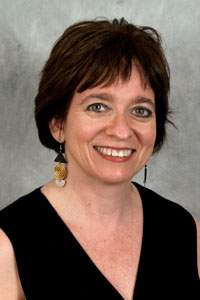Obama clears Feldblum for EEOC seat

Chai Feldblum
Using a constitutional provision known as a “recess appointment,” President Obama on Saturday appointed lesbian law professor Chai Feldblum and three others to positions on the U.S. Equal Employment Opportunity Commission.
Feldblum and the others had been approved by a Senate committee in early December but their confirmation vote was put on indefinite hold by a Senate Republican.
In making the direct appointments for the EEOC, Obama also made 11 other recess appointments of nominees to “critical administration posts.” In a statement, the White House referred to “months of Republican obstruction” to nominees and noted that while the Senate has yet to approve 217 of President Obama’s nominees, President Bush had only 5 still pending at this point in his first term.
Numerous right-wing groups voiced opposition to Feldblum shortly after she was nominated. The Traditional Values Coalition called Feldblum “yet another radical Obama nominee,” saying she would “use her power to strip nearly all First Amendment rights of freedom of expression/free exercise of religion from businesses.” Concerned Women for America said she “represents one of the most serious threats to religious freedom we have seen in a long time.” And The Family Research Council said Feldblum “openly admitted to supporting polygamy.”
Some predicted that opposition would surface during her confirmation hearing in November. But it didn’t, at least in part because Tom Harkin, the chairman of the Senate Health, Education, Labor and Pensions Committee, which handled the nomination, met the controversy head on.
“Something has come to our attention here—a petition,” said Harkin, “…that you signed onto” that expresses support for “committed loving households in which there are more than one conjugal partner.”
“That says polygamy to me,” said Harkin, noting that it is illegal in the United States and that, in the 20-plus years he has worked with her, he never knew she supported polygamy.
“I do not support polygamy,” said Feldblum. “I am sorry I signed that document and I have asked that my name be removed.”
A spokesperson for Senate Majority Leader Harry Reid said March 1 that Feldblum’s nomination, and that of the other EEOC nominees, had been put on hold by a Republican senator. Any senator can put any nominee on indefinite hold for a period of time without identifying himself or herself. While rules require that a senator must identify themselves within a few days, senators have been able to get around that rule by taking turns putting the hold in place.
Feldblum is probably best known for her work on the Americans with Disabilities Act (ADA), which passed in 1990, prohibiting discrimination in employment, public accommodations, and other areas against people with disabilities. The law also covered people with HIV infection. She was also involved in last year’s bill that made amendments to the original law.
But Feldblum is best known to the LGBT community as a key counsel on the drafting and negotiations over the Employment Non-Discrimination Act (ENDA). She also served for a time as legislative counsel for the American Civil Liberties Union in Washington, D.C. Feldblum served for a year as a law clerk to U.S. Supreme Court Justice Harry Blackmun. She is currently a professor of law at Georgetown University and serves as co-director of the university’s Federal Legislation and Administrative Clinic.
During her confirmation hearing, Feldblum made prominent mention of her affiliation with another Catholic institution, Catholic Charities USA. The Georgetown University Law School’s Federal Legislation Clinic, which Feldblum founded in 1993, worked for many years representing Catholic Charities.
Feldblum assured the Committee that she is aware of and comfortable with the religious exemptions in Title VII of the Civil Rights Act and in ENDA.
“I strongly support that exemption,” said Feldblum, “…and I would not have a problem at all enforcing that exemption.”
Should ENDA pass, a position on the EEOC puts Feldblum in position to be one of five commissioners to develop regulations for its implementation.


Leave a Reply